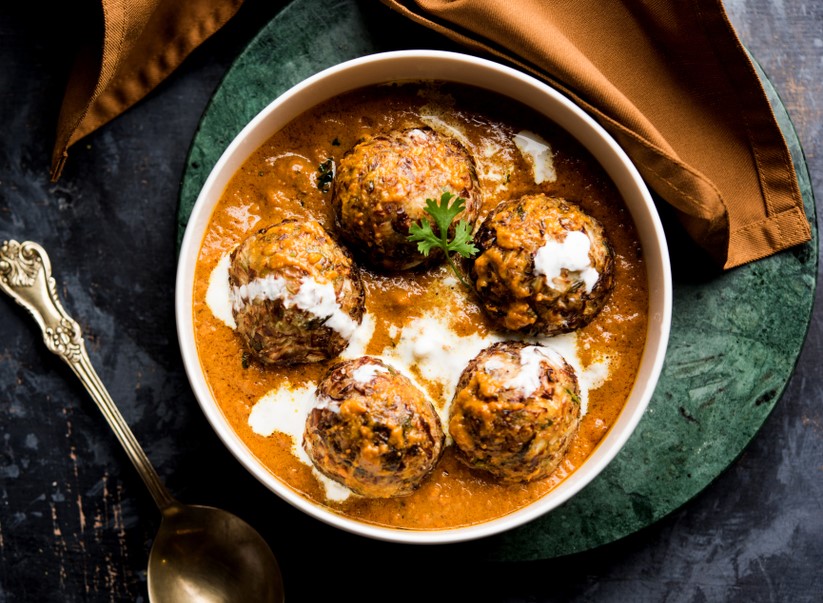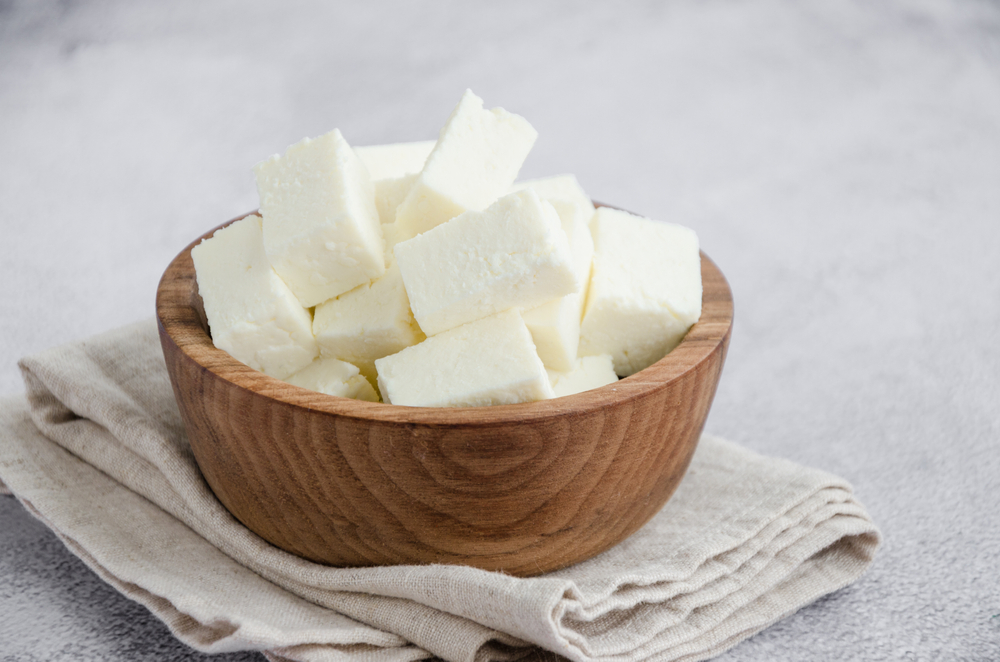Malai Kofta
Malai kofta is a rich and indulgent North Indian dish featuring soft, melt-in-the-mouth koftas (dumplings) made of paneer, potatoes, and nuts, simmered in a creamy, spiced tomato-based gravy. The word malai refers to the creaminess of the dish, while kofta signifies the fried dumplings. It is often served during festive occasions and special gatherings, highlighting its association with celebration and luxury. Originating from Mughlai cuisine, malai kofta is a staple in Indian restaurants and a favorite among vegetarians. Served with naan, roti, or basmati rice, this dish is a treat for the senses with its rich flavors and textures.
Recipe Servings: 4–6
Prep Time
30 minutes
Cook Time
40 minutes
Total Time
1 hour 10 minutes
Vegetarian
Vegan
Gluten Free
Dairy Free
Kosher
Halal
Ingredients
- 1 cup (200 g) grated paneer
- 1 medium potato, boiled and mashed (about 150 g)
- 2 Tbsp (15 g) finely chopped cashews or raisins
- 2 Tbsp (15 g) cornstarch or besan (chickpea flour)
- ½ tsp (2 g) ground cumin
- ½ tsp (2 g) garam masala
- ½ tsp (2 g) salt
- Oil, for frying
- 2 Tbsp (30 ml) vegetable oil or ghee
- 1 medium onion, finely chopped
- 2 cloves garlic, minced
- 1-inch (2.5 cm) piece of ginger, minced
- 2 medium tomatoes, finely chopped, or 1 cup (240 ml) canned crushed tomatoes
- 10–12 cashews, soaked in warm water for 10 minutes
- ½ tsp (2 g) turmeric powder
- 1 tsp (5 g) ground coriander
- 1 tsp (5 g) ground cumin
- ½ tsp (2 g) chili powder (adjust to taste)
- ½ tsp (2 g) garam masala
- 1 cup (240 ml) heavy cream or cashew cream
- ½ cup (120 ml) water (adjust as needed)
- Salt, to taste
- 2 Tbsp (8 g) chopped fresh cilantro
- 1 Tbsp (15 ml) cream (optional, for drizzling)
Directions
- In a mixing bowl, combine grated paneer, mashed potato, chopped cashews or raisins, cornstarch or besan, ground cumin, garam masala, and salt. Mix until the mixture holds together.
- Divide the mixture into small equal portions and shape them into smooth balls.
- Heat oil in a deep pan over medium heat. Fry the koftas in batches until golden brown. Remove and drain on paper towels.
- Heat vegetable oil or ghee in a pan over medium heat.
- Add chopped onions and sauté until golden brown, about 5–7 minutes.
- Stir in garlic and ginger, cooking for 1–2 minutes until fragrant.
- Add chopped tomatoes and cook until the mixture thickens and oil starts to separate (about 8–10 minutes).
- Blend the soaked cashews into a smooth paste and add it to the tomato mixture. Cook for another 2–3 minutes.
- Stir in turmeric, ground coriander, ground cumin, chili powder, and garam masala. Sauté for 1–2 minutes to toast the spices.
- Add cream and water, mixing well to create a smooth, rich gravy. Simmer for 5 minutes.
- Taste and adjust seasoning with salt.
- Just before serving, gently place the fried koftas into the simmering gravy and cook for 2–3 minutes to allow the flavors to meld. Avoid overcooking, as the koftas may break.
- Garnish with fresh cilantro and a drizzle of cream, if desired.
- Serve hot with naan, roti, or basmati rice.
Preparing the Koftas:
Preparing the Gravy:
Assembly and Serving:
Notes
- Koftas can be baked or air-fried for a healthier alternative.
- Adjust the consistency of the gravy by adding more or less water.
Copyright © 1993—2025 World Trade Press. All rights reserved.

 India
India 
